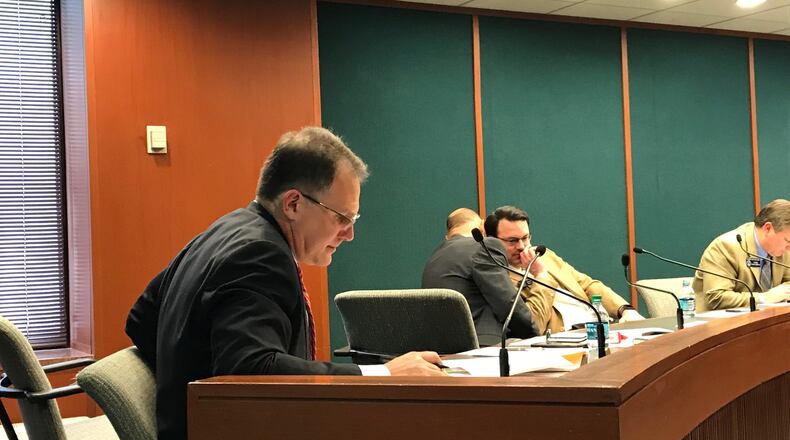The Georgia senate's higher education committee voted Tuesday to remove provisions from a bill that would impose fines and penalties as severe as expulsion for student protesters who repeatedly stop people from speaking on Georgia's public college campuses.
Senate Bill 339 would include an amendment that would have the University System of Georgia create a range of unspecified penalties for anyone who disrupts a guest speaker on campus. Democrats on the committee were against the amendment, saying the state senate’s legislative counsel has advised them the Georgia Legislature doesn’t have the authority to compel colleges and universities to create such guidelines.
“We don’t have the constitutional right to do that,” said Sen. Nan Orrock, D-Atlanta. “The whole bill is fatally flawed.”
Sen. William Ligon, R-Brunswick, the lead sponsor of the bill, said the legislation is necessary in light of situations across the nation on college campuses where speakers, primarily conservatives, have been shouted down by critics.
The Georgia Board of Regents last year adopted systemwide campus speech guidelines last year requiring all of its colleges and universities to provide high-traffic, accessible areas for speakers. The presidents of three Georgia institutions - Abraham Baldwin Agricultural College, East Georgia State College and Savannah State University - told the committee the current guidelines generally work.
The rules do not mention penalties for students who disrupt a speaker. The bill’s supporters say the system’s guidelines lack accountability for those who disrupt a speaker.
The bill has not been voted on by the entire Senate.
MYAJC.COM: REAL JOURNALISM. REAL LOCAL IMPACT.
The AJC's Eric Stirgus keeps you updated on the latest happenings in higher education affecting metro Atlanta and Georgia. You'll find more on myAJC.com, including these stories:
Never miss a minute of what's happening in state and local education. Subscribe to myAJC.com.
In other Education news:
About the Author
Keep Reading
The Latest
Featured



